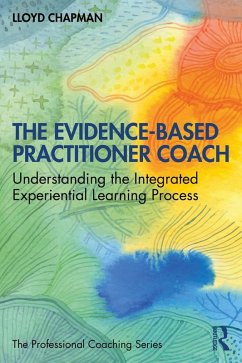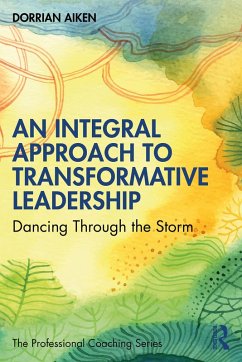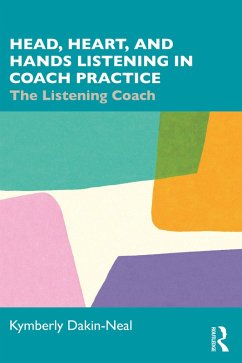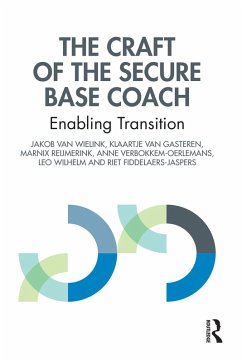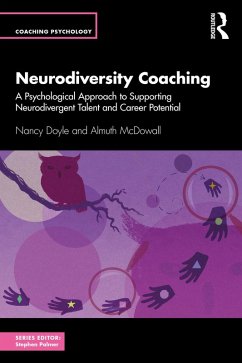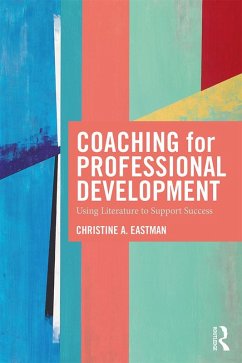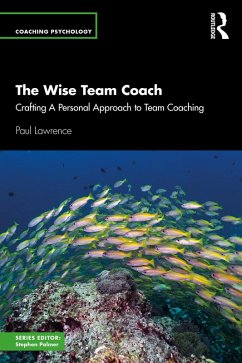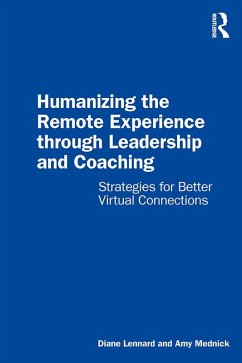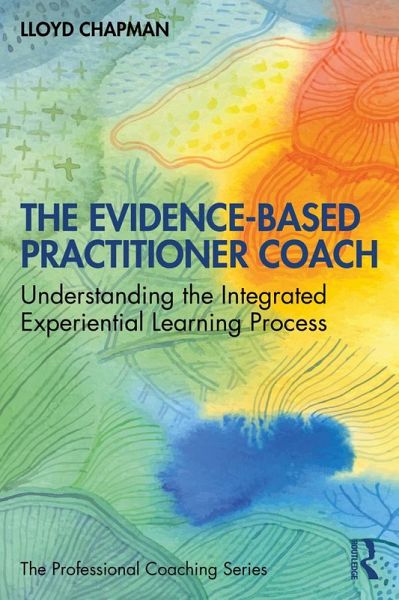
The Evidence-Based Practitioner Coach (eBook, PDF)
Understanding the Integrated Experiential Learning Process
Versandkostenfrei!
Sofort per Download lieferbar
28,95 €
inkl. MwSt.
Weitere Ausgaben:

PAYBACK Punkte
14 °P sammeln!
The Evidence-Based Practitioner Coach gives a descriptive, phenomenological understanding of human development through the lens of the Integrated Experiential Learning Process, and how it can be applied in coaching.Aimed at coaches who would like to ground their experience in an evidence-based practitioner model, it synthesises evidence and theory from a range of disciplines, exploring how we learn through a complex process involving brain, body and social relationships, and facilitated consciously and unconsciously through the central and autonomic nervous systems. It applies this understandi...
The Evidence-Based Practitioner Coach gives a descriptive, phenomenological understanding of human development through the lens of the Integrated Experiential Learning Process, and how it can be applied in coaching.
Aimed at coaches who would like to ground their experience in an evidence-based practitioner model, it synthesises evidence and theory from a range of disciplines, exploring how we learn through a complex process involving brain, body and social relationships, and facilitated consciously and unconsciously through the central and autonomic nervous systems. It applies this understanding to a range of settings, contexts and environments. The book notably combines the fascinating knowledge produced by cutting-edge research with useful, practical methodologies developed by some of the wisest observers of humanity. Its sheer readability, in an engagingly down-to-earth and warmly human way, helps make the contents readily accessible to coach practitioners and others from non-academic backgrounds.
Rigorous and erudite, this book would be suitable for business coaches, corporate executives, senior managers, and human resource specialists, and provides an invaluable contribution to what it means to be a scientist-practitioner within the evolving profession of coaching.
Aimed at coaches who would like to ground their experience in an evidence-based practitioner model, it synthesises evidence and theory from a range of disciplines, exploring how we learn through a complex process involving brain, body and social relationships, and facilitated consciously and unconsciously through the central and autonomic nervous systems. It applies this understanding to a range of settings, contexts and environments. The book notably combines the fascinating knowledge produced by cutting-edge research with useful, practical methodologies developed by some of the wisest observers of humanity. Its sheer readability, in an engagingly down-to-earth and warmly human way, helps make the contents readily accessible to coach practitioners and others from non-academic backgrounds.
Rigorous and erudite, this book would be suitable for business coaches, corporate executives, senior managers, and human resource specialists, and provides an invaluable contribution to what it means to be a scientist-practitioner within the evolving profession of coaching.
Dieser Download kann aus rechtlichen Gründen nur mit Rechnungsadresse in A, B, BG, CY, CZ, D, DK, EW, E, FIN, F, GR, HR, H, IRL, I, LT, L, LR, M, NL, PL, P, R, S, SLO, SK ausgeliefert werden.




